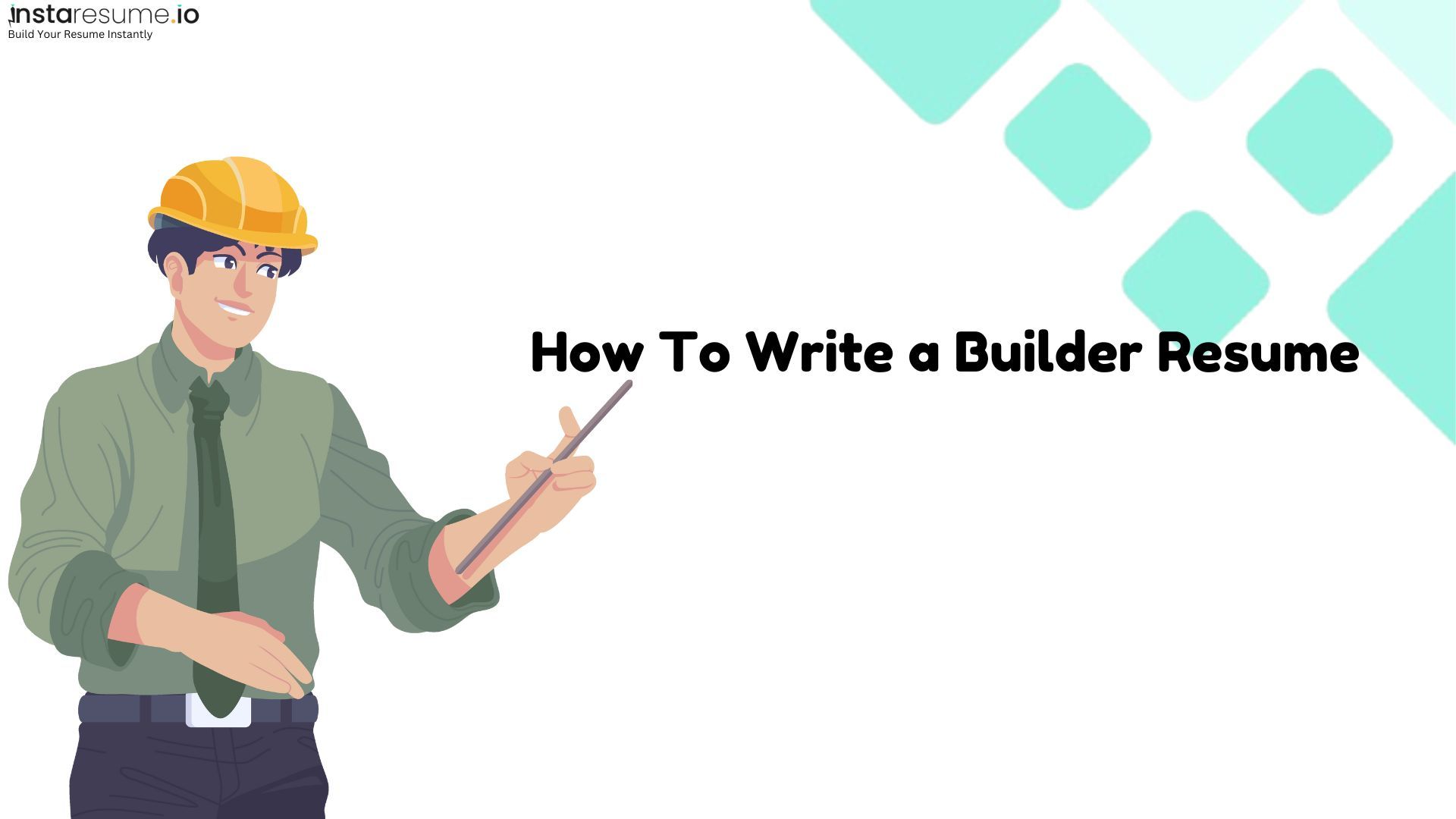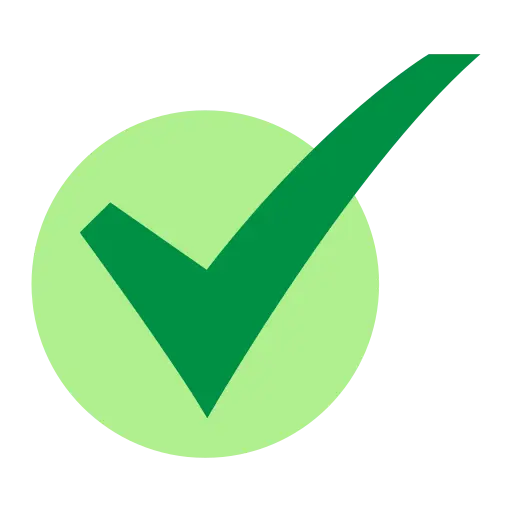How To Write a Builder Resume (With Template and Example)
Trust Score: 4.8
362 reviews

Table of Contents
In a world where recruiters spend mere seconds scanning your profile, your resume needs to speak volumes—fast. But let’s face it: not everyone is a wordsmith or a design guru. That’s where a resume builder comes in not just as a tool, but as your personal branding assistant. Whether you're a fresher breaking into the job market or a seasoned pro aiming for a career pivot, the right resume builder can transform your story into a standout CV that lands interviews.
In this guide, we’ll walk you through what makes a resume builder powerful, how to choose the right one, and why it might be the smartest move you make in your job hunt.
Explore builder jobs on indeed!!
About resume for builder
When writing your resume for a builder role, it’s essential to follow standard formatting practices. A well-organized and professional-looking resume not only makes a strong first impression but also helps employers quickly understand your qualifications. Below are the key sections you can include to create a clear and effective resume for a builder position:
Header:
This section includes your personal details such as your full name, phone number, email address, and your current city or location. Make sure this information is up to date and easy to find.
Professional Summary:
The professional summary is a short, two to three sentence introduction that highlights your key qualifications, work experience, and career goals. You can also include notable achievements or areas of specialisation relevant to the building or construction industry.
Experience:
In this section, list your previous work experience, focusing on roles where you applied your builder skills. Include the job title, company name, location, and dates of employment. Use bullet points to describe your responsibilities and accomplishments.
Skills:
Your skills section should highlight your core abilities that are relevant to the builder role. This might include three to five technical skills such as operating tools, reading blueprints, or knowledge of safety procedures, as well as one or two soft skills like communication or teamwork.
Educational Qualifications:
Mention your academic background, including the name of your qualification, the institution where you studied, and the date of completion. If you have completed any trade certifications or builder-specific training, be sure to include those here as well.
Resume for builder example
Edit and download this example of resume for builder position created using the Instaresume's OCEAN · TWO COLUMN CV TEMPLATE WITH SIDE BAR RIGHT
How to write a resume for builder
How to Write a Resume for a Builder (Construction Role)
Crafting a resume as a builder means highlighting not just your hands-on experience but also your ability to deliver safe, high-quality work on time. Here’s a step-by-step guide to help you create a solid and professional resume tailored for the construction industry:
1. Start with a Strong Professional Summary
Your summary should briefly showcase your years of experience, key skills (like project management, equipment handling, or blueprint reading), and your reliability as a team member.
Example:
Experienced and safety-focused builder with over 8 years in residential and commercial construction. Skilled in foundation work, framing, and site management with a strong commitment to meeting deadlines and quality standards.
2. Highlight Core Skills
Use a bullet-point list to include relevant technical and soft skills. These should align with what hiring managers in the industry are looking for.
Key Skills:
Blueprint reading & interpretation
Concrete pouring & framing
Site safety compliance (OSHA standards)
Equipment operation (e.g., forklifts, cranes)
Team collaboration & leadership
Time and project management
3. Detail Your Work Experience
List jobs in reverse chronological order. Focus on achievements, responsibilities, and the scale of projects.
Example:
Senior Builder – ABC Constructions, Mumbai
March 2020 – Present
Led a team of 10+ workers on residential housing projects
Reduced material waste by 20% through efficient on-site planning
Ensured 100% compliance with safety protocols across all projects
4. Include Education & Certifications
Mention any relevant diplomas, certifications, or training—especially safety-related courses.
Example:
Diploma in Civil Construction, XYZ Institute
Certified in Construction Safety (OSHA 30-hour course)
Forklift Operator License
5. Optional: Add a Projects Section
Especially useful for builders, showcasing major projects adds credibility and context to your skills.
Example:
High-Rise Residential Tower – Pune
Managed construction timelines and coordinated with vendors
Delivered project two weeks ahead of schedule
Tips for writing a resume for builder
Tips for Writing a Resume for a Builder (with Examples)
Crafting a standout resume as a builder requires more than just listing previous jobs—you need to demonstrate your skills, achievements, and reliability. Below are practical tips with examples to help you write a builder resume that grabs attention:
1. Tailor your resume to the job
Customize your resume to match the job you're applying for. Use keywords and skills mentioned in the job description.
Example:
If a job post says “looking for experience in commercial site management and steel framing”, you might write:
“Managed large-scale commercial projects with a focus on structural steel framing and subcontractor coordination.”
2. Showcase safety awareness
Demonstrating safety knowledge is a must in construction roles.
Example:
“Maintained an accident-free record for 3 consecutive years by enforcing daily safety checks and ensuring OSHA compliance across all job sites.”
3. Quantify achievements
Numbers give your resume credibility and help employers understand your impact.
Example:
“Led a 12-member team to complete a ₹2.5 crore residential project 3 weeks ahead of deadline with zero rework.”
4. Focus on skills that matter
Include job-specific hard skills along with essential soft skills.
Example:
Technical Skills: Concrete mixing, drywall installation, blueprint reading, scaffolding
Soft Skills: Team leadership, punctuality, problem-solving, client communication
5. Keep it clear and structured
Use a clean format with bullet points for readability. Avoid dense paragraphs.
Example (Experience Section):
Builder – Skyline Developers, Bengaluru
Jan 2024 – Present
 Installed drywall and insulation for over 30 residential units
Installed drywall and insulation for over 30 residential units Read and interpreted blueprints to ensure accurate wall placements
Read and interpreted blueprints to ensure accurate wall placements Collaborated with electricians and plumbers to streamline workflow
Collaborated with electricians and plumbers to streamline workflow
6. Add Certifications and Licenses
List certifications relevant to the construction field to boost credibility.
Example:
 OSHA 30-Hour Safety Certification
OSHA 30-Hour Safety Certification Scaffolding and Rigging License – Maharashtra Board
Scaffolding and Rigging License – Maharashtra Board Crane Operator Certificate – Valid till 2026
Crane Operator Certificate – Valid till 2026
7. Mention Project Highlights
Include key projects that show your experience, especially if they were high-value or complex builds.
Example:
Project: Luxury Apartment Complex, Pune (₹10 Crore)
 Role: Senior Site Builder
Role: Senior Site Builder Responsibilities: Coordinated framing, electrical layout, and quality checks
Responsibilities: Coordinated framing, electrical layout, and quality checks Result: Delivered on time, with a 98% client satisfaction rate
Result: Delivered on time, with a 98% client satisfaction rate
FAQs
What should be included in a resume for builder?
A builder’s resume should include contact information, a strong summary, relevant work experience, technical skills (like bricklaying, carpentry, or site supervision), certifications, and safety training.
How do I write a professional summary in a resume for builder?
Your summary should briefly highlight your experience, areas of expertise (e.g., residential, commercial, or industrial projects), and any key strengths such as teamwork, physical stamina, or safety compliance.
Which skills are important to include in a resume for builder
Important skills include construction knowledge, blueprint reading, use of power tools, project coordination, safety awareness, teamwork, physical endurance, and time management.
Do I need to mention certifications or licenses in a resume for builder?
Yes, always mention certifications like OSHA training, forklift operation licenses, or trade-specific qualifications as they can improve your chances of getting hired.
How should I list my work experience as a builder?
List your experience in reverse chronological order. Include your job title, company name, location, employment dates, and 4–5 bullet points describing your responsibilities and achievements.
Can I include non-construction jobs in my resume for builder?
Yes, if they demonstrate transferable skills like teamwork, physical labor, or time management. Just keep the focus on how those experiences relate to building or construction work.
Should I include education in a builder resume?
Yes. Include your highest level of education and any relevant vocational training or apprenticeships in construction or building-related fields.
What kind of resume format is best for a builder?
A functional or combination resume works well. It highlights both your skills and work history, especially if you have gaps or varied roles in construction.
How can I make my builder resume stand out?
Use action words like “constructed,” “installed,” “managed,” or “operated.” Quantify your impact where possible, like “completed 20+ residential projects on time and within budget.”
Is a cover letter necessary for builder jobs?
While not always required, a short cover letter can help you stand out. Use it to highlight your experience, reliability, and readiness to contribute to the employer’s projects.
You can make cover letter if required from instaresume.io cover letter builder.
Conclusion
Creating a well-structured resume is essential for anyone in the building or construction profession. Whether you’re a general laborer, skilled tradesperson, or site supervisor, a strong resume helps you showcase your hands-on experience, technical skills, and reliability. By including relevant certifications, using the right format, and clearly outlining your achievements, you increase your chances of landing better opportunities in a competitive job market. Keep your resume updated and tailored to each job to stay ahead in the construction industry.







